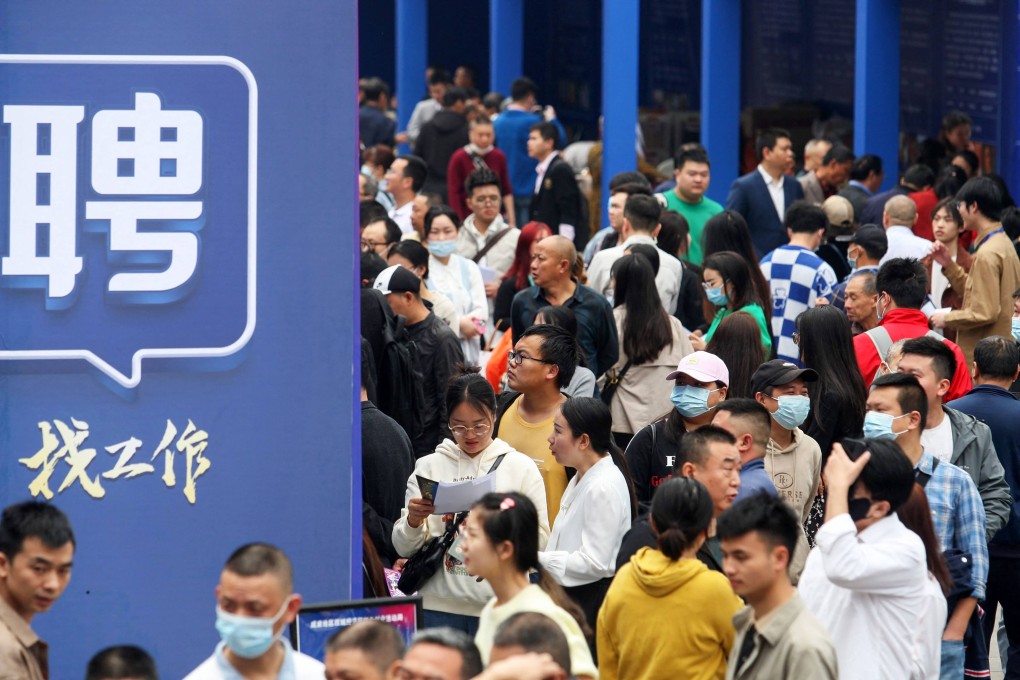Advertisement
Editorial | Job hopes of young in China rest on private sector
- With the unemployment rate of China’s 15-to-24-year-olds at a record high, support for the business sector so it can provide work is paramount
Reading Time:2 minutes
Why you can trust SCMP
1

Youth unemployment in China came uncomfortably close to 20 per cent last July, in the wake of two months of the controversial Shanghai city Covid lockdowns. Then it fell back from 19.5 per cent, though it has fluctuated.
The small relief this brought to economic policymakers has proved short-lived.
The official jobless rate among 15-to-24-year-olds hit a record 20.4 per cent last month – the headline takeaway from a mixed bunch of statistics from the National Statistics Bureau of China on the nation’s recovery from three years of Covid restrictions.
Advertisement
This reflects a hesitant economic rebound. It is a worrying sign as 11.58 million new graduates come onto the job market, and underlines the challenges to be overcome if the economy is to reach the government’s growth target this year of around 5 per cent.
Young jobseekers face a consumer market that is still trying to recover its confidence. In that respect, other notable takeaways from April’s economic indicators include retail sales and industrial production that fell short of expectations, with weak foreign demand a factor in the latter.
Advertisement
Fixed-asset investment held up reasonably well, according to analysts, while investment in the property sector fell again.
Advertisement
Select Voice
Select Speed
1.00x
